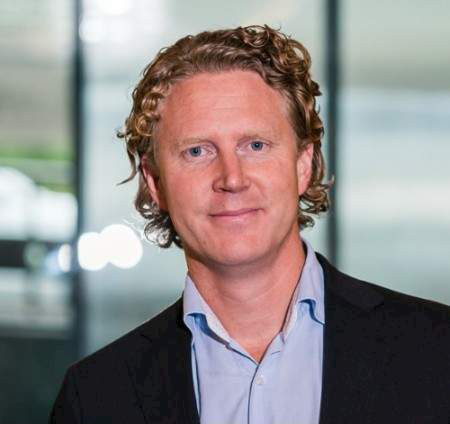How do you prepare a business for whatever happens next? According to the results from a recent comprehensive Economist Impact study, the ingredients are about getting the full value from technology investments and data, ensuring that the workforce has a digital mindset and taking real ESG action to become resilient.
Have you heard about the “3 R’s”? Brian Humphries, CEO at Cognizant, says that worries about recession, recruitment and retention are top of mind for senior executives around the globe. During the Client Executive event in Stockholm in September, he shared his thoughts on the rapidly changing market dynamics. Much more is expected of businesses today, which must now respond to the larger contexts in which they operate, whether societal, environmental, technological, economic, or geopolitical.
However, amid the pandemic it became painfully obvious that something important is missing: the connecting digital threads between the existing layers of tech investments; the necessary threads for agility, responsiveness and digital intelligence. To act seamlessly, adapt instantly and transform customer experiences, businesses now need intuitive operating models, according to Brian Humphries. To remain relevant ahead, he forecasts three important capabilities: consumerization, hyper-personalization and a strong focus on security.
Strategy, technology, talent
While tech surely holds the potential to unlock human potential, it’s somehow easier said than done. To get the full value out of tech investments, workforce strategies need a major overhaul, says Euan Davis, Head of Cognizant Research. His conclusion comes from the joint Cognizant/Economist Impact study, where over 2,000 business leaders were interviewed on how they are preparing for being future-ready.
The same study reveals that while the tech foundation is rising (no tech isn’t under executives’ radar!), strategies and priorities are muddled. When everything is a priority, nothing is a priority; the long list of strategic priorities doesn’t go well with the pressing realities of building a foundation for the future.
Almost half of the respondents are still not achieving significant value from their technology investments. The elephant in the room? People don’t have the right skills to utilize the technologies that are already implemented. Why aren’t companies investing as much in people as in tech?
A sustainable flow of talents
This is where investing in diversity comes in. Diversity and inclusion in the workplace are among the most important topics facing HR and recruiting professionals. Besides securing the talent pipeline and mirroring society, research shows that diverse teams boost revenue and improve decision-making as well as work engagement, among other things. And both men and women seek diversity when evaluating a new employer.
The drive to trigger change through inspiration led Vanessa Eriksson, CDO at Zenseact, to bring about the first Girls in Tech in 2017. Since 2022, the non-profit organization also has a Nordic assignment. Its mission is to enable a continuous and sustainable flow of women in tech by inspiring girls between the ages of 13–16 in the areas of technology, science and engineering. Any conclusions so far? The girls do not want someone who passively talks to them, they want action. Cognizant recently became a Girls in Tech partner, as part of our local ESG program.
ESG matters on all levels
What else can you do in the intensifying competition for talent? Take some real ESG action; top talent will increasingly look for companies that take ESG seriously.
The Cognizant/Economist Impact study shows that 9 in 10 decision-makers recognize that attending to ESG issues is a critical aspect of being a modern business. However, there’s a massive disconnect between recognition and action. But there is no escape: compliance will drive sustainability, together with stakeholders’ demands end expectations.
Brian Humphries recognizes how difficult it can be for many corporations to reduce their emission footprint and transition to net zero. Large companies, whose operations potentially affect many millions of people, have an obligation to all of their stakeholders to embed ESG into their thinking, decisions and actions. That’s why Cognizant has articulated its ESG commitment and is providing sustainability services to help clients.
To sum up, what are the next steps of building a modern business? Make sure to get the full value from your tech investments, prepare the workforce for digital and take real ESG action. Is your organization ready?















